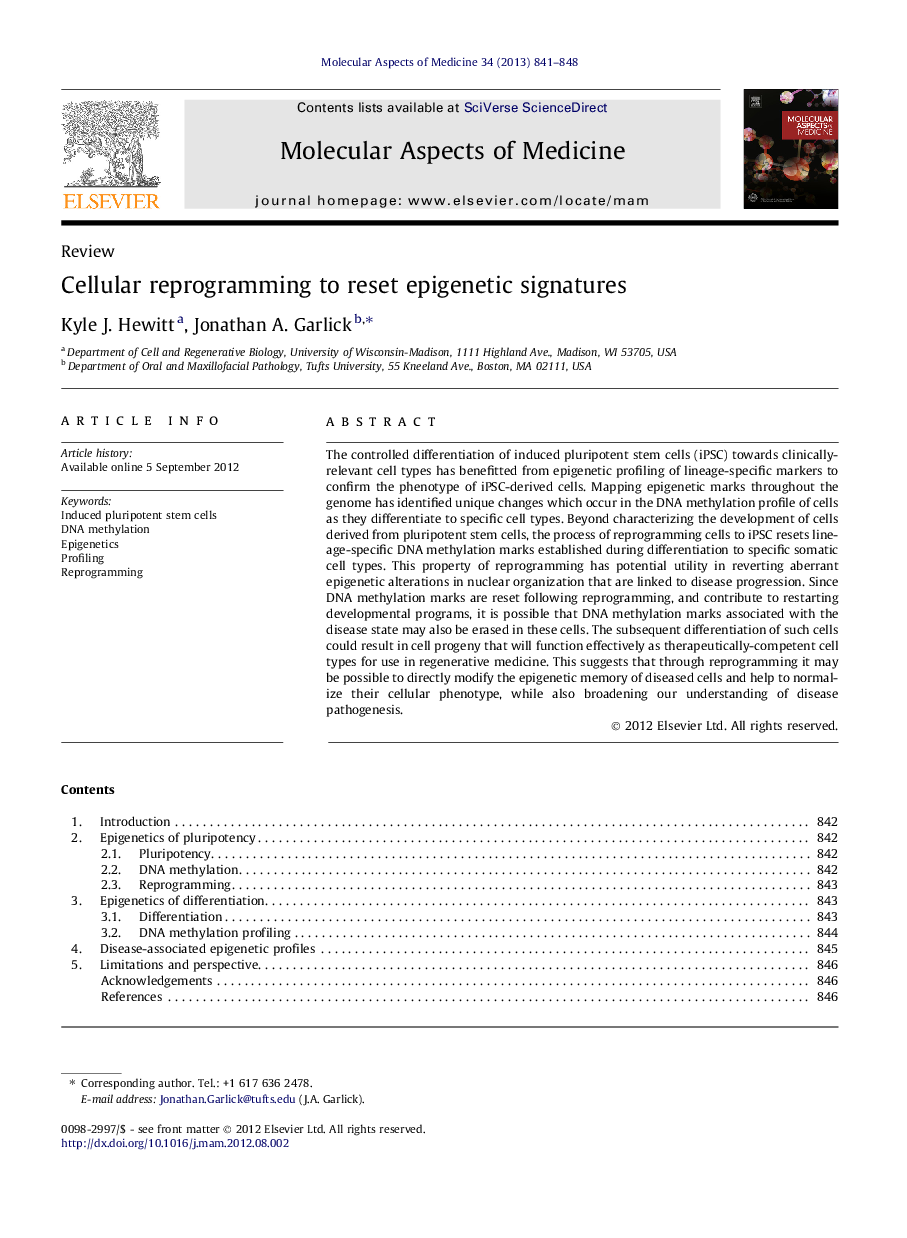| Article ID | Journal | Published Year | Pages | File Type |
|---|---|---|---|---|
| 8341486 | Molecular Aspects of Medicine | 2013 | 8 Pages |
Abstract
The controlled differentiation of induced pluripotent stem cells (iPSC) towards clinically-relevant cell types has benefitted from epigenetic profiling of lineage-specific markers to confirm the phenotype of iPSC-derived cells. Mapping epigenetic marks throughout the genome has identified unique changes which occur in the DNA methylation profile of cells as they differentiate to specific cell types. Beyond characterizing the development of cells derived from pluripotent stem cells, the process of reprogramming cells to iPSC resets lineage-specific DNA methylation marks established during differentiation to specific somatic cell types. This property of reprogramming has potential utility in reverting aberrant epigenetic alterations in nuclear organization that are linked to disease progression. Since DNA methylation marks are reset following reprogramming, and contribute to restarting developmental programs, it is possible that DNA methylation marks associated with the disease state may also be erased in these cells. The subsequent differentiation of such cells could result in cell progeny that will function effectively as therapeutically-competent cell types for use in regenerative medicine. This suggests that through reprogramming it may be possible to directly modify the epigenetic memory of diseased cells and help to normalize their cellular phenotype, while also broadening our understanding of disease pathogenesis.
Related Topics
Life Sciences
Biochemistry, Genetics and Molecular Biology
Biochemistry
Authors
Kyle J. Hewitt, Jonathan A. Garlick,
